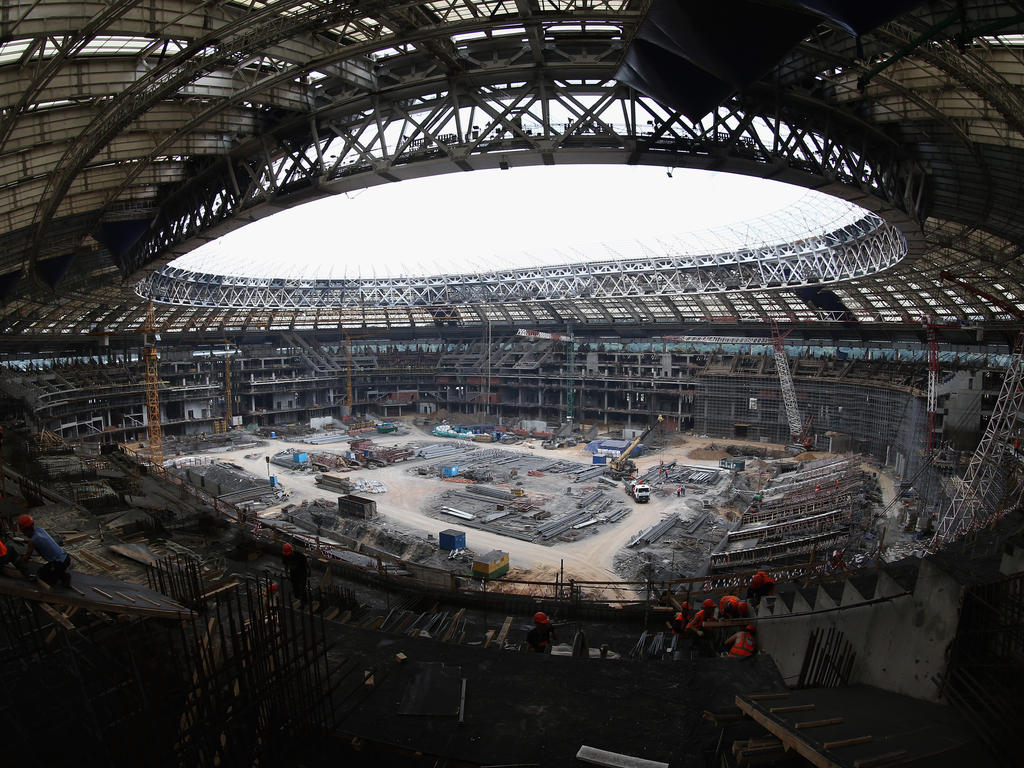Moscow World Cup venue 'ahead of schedule'

With just over two years to go before the kick-off of the 2018 World Cup, hundreds of hard-hat clad workers brave Moscow's subzero temperatures to rebuild the tournament's flagship stadium, which officials say could be completed ahead of schedule.
Built on the bank of the Moskva river in the 1950s, the Luzhniki stadium is now undergoing a major facelift to host the World Cup final, as well as the opening match and the tournament's second semi-final.
"The stadium should be ready during the second quarter of 2017, according to FIFA deadlines," foreman Murat Akhmadiyev told AFP on Tuesday.
"But given that we are progressing quickly, we want to complete the main work by the end of 2016."
Sports minister Vitaly Mutko said last week that the work on the venue -- which hosted the opening ceremony of the 1980 Moscow Olympics -- was going at a "very good pace" and that it could be completed earlier than planned.
Akhmadiyev said that work was going at a frantic pace, with 1,600 labourers working round-the-clock in 12-hour shifts.
Russia's economic woes brought on by low oil prices and Western sanctions over Ukraine sparked concern that the country would not be able to complete its World Cup venues on time and on budget.
The ruble's plunge and the economic slowdown has forced the government to keep spending in check.
Last summer Moscow announced 30-billion rubles ($380 million at the current exchange rate) in spending cuts on the World Cup to limit its overall budget to 631.5 billion rubles.
Akhmadiyev said that all construction materials used at Luzhniki were domestically-manufactured and that the economic crisis had not affected work on the venue.
"All the money stays in Russia," Akhmadiyev said. "We are happy that our construction project is making Russian manufacturers, and steel and concrete factories stronger."
While officials remain sanguine about Luzhniki, progress on some of Russia's other World Cup venues is not so rapid.
The general contractor building the Saint Petersburg Stadium in the former Imperial capital requested an additional 435 million rubles from local authorities after the Russian currency lost around half its value in 2014.
"We are now in February 2016 and we are building with 2013 prices," company director Vitaly Lazutkin said in a statement on Monday.
"Our reserves of import substitutions have come to an end, we need to buy foreign equipment."
In the Russian exclave of Kaliningrad, sandwiched between EU members Poland and Lithuania, workers only last month began laying the foundations of a new stadium.
And in Nizhny Novgorod, some 400 kilometres east of Moscow, construction on a 45,000-seat stadium began less than a year ago.
The bidding process for the 2018 tournament, as well as that of Qatar's 2022 World Cup, has come under scrutiny as part of twin Swiss and US corruption investigations into FIFA's practices.
Suspended FIFA head Sepp Blatter has alleged that a backroom deal was struck to award Russia the 2018 World Cup before voting for the host country had even taken place, a charge Moscow has repeatedly denied.






